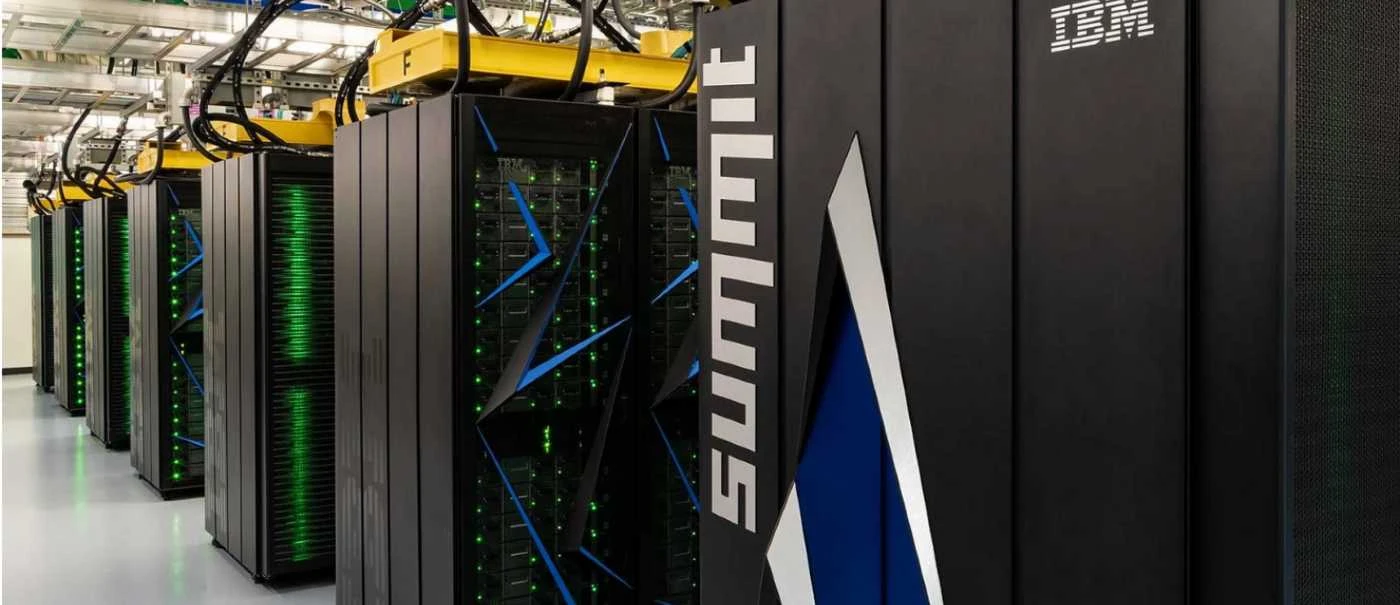The UK government has joined the US Covid-19 high performance computing HPC consortium, a consortium of 40 companies and research institutes sharing supercomputing resources to tackle the Covid-19 outbreak. There are currently 56 active projects using more than 430 Petaflops of computing power.
The UK has added more than 20 Petaflops of high-performance computing capability from three supercomputers through UK Research and Innovation (UKRI).
These include the ARCHER supercomputer at the University of Edinburgh, based around the Cray XC30, the DiRAC and the Hartree Centre at Daresbury Laboratory as well as the Biotechnology and Biological Sciences Research Council’s (BBSRC) Earlham Institute. The Met Office and UK Atomic Energy Authority will also provide capabilities to the consortium.
Consortium members and affiliates manage a range of computing capabilities: from small clusters to some of the largest supercomputers in the world. They offer not only computational resources, but also software, services, and deep technical expertise to help COVID-19 researchers execute complex computational research programs.
Fighting COVID-19 will require extensive research in areas like bioinformatics, epidemiology, and molecular modeling to understand the threat we’re facing and form strategies to address it. This work demands a massive amount of computational capacity.
The COVID-19 High Performance Computing Consortium helps aggregate computing capabilities from the world’s most powerful and advanced computers to help COVID-19 researchers execute complex computational research programs to help fight the virus.
While UKRI says it is the first European supercomputing partner to join, there are three UK projects already using supercomputing capabilities through the Consortium. One, running on another Consortium supercomputer, is London-based machine-learning chemistry startup PostEra.
This has already identified around 21 molecular designs that effectively target a key protein associated with Covid-19. Another project by AI startup Kuano in London looks to design a new drug.
Projects seeking access to UK facilities will be subject to peer review process to access project needs. UKRI has a rolling urgent call for research proposals that address Covid-19 and proposals and the Consortium will cooperate with academics to use the appropriate facilities.
IBM researchers who are located at and working closely with the Hartree Centre, are collaborating with researchers at the University of Oxford where they are combining advanced molecular simulations with AI in a bid to discover new potential compounds that could be repurposed as candidate antiviral drugs for Covid-19.
“Tackling coronavirus requires a joint and strong international effort and the very best minds in science and technology sharing their research and knowledge,” said Amanda Solloway, UK Science Minister.
“By joining this consortium, our leading researchers will be able to access some of the most advanced computers in the world to speed up their research, gain access to new developments, and share the UK’s world-class computing technologies to find a solution to this virus.”
However there are other European moves to help HPC researchers tackle the Covid-19 pandemic. Lenovo is working with AMD and The Dutch National Institute for Subatomic Physics is offering its HPC system in Amsterdam to the Rosetta@Home project by the University of Washington to unravel the underyling structure of the Covid-19 virus.
This is using a Lenovo ThinkSystem SR655 based on AMD processors to prepare for the increasing data streams coming from CERN, the European Organisation for Nuclear Research, where the Large Hadron Collider particle accelerator is predicted to produce ten times the current volume of data.
In the last week, a total of four racks have been delivered and installed, including more than 3800 AMD EPYC compute cores and 31 terabytes of memory.
UKRI joins IBM and the US Department of Energy who are co-leading the effort, with Google, Microsoft, Amazon and Hewlett Packard Enterprise, BP, as well as NASA, the National Science Foundation, Pittsburgh Supercomputing Center and six National Labs—Lawrence Livermore, Lawrence Berkeley, Argonne, Los Alamos, Oak Ridge and Sandia, and others.
In addition, there are academic institutions, including MIT; Rensselaer Polytechnic Institute; the University of Texas, Austin; and the University of California, San Diego and more.
AMD is also working with Lawrence Livermore National Laboratory and Penguin Computing in the US to upgrade the Lab’s unclassified, Corona high performance computing (HPC) cluster to aid Covid-19 research. The Corona system will be used by the HPC Consortium and by LLNL researchers.



